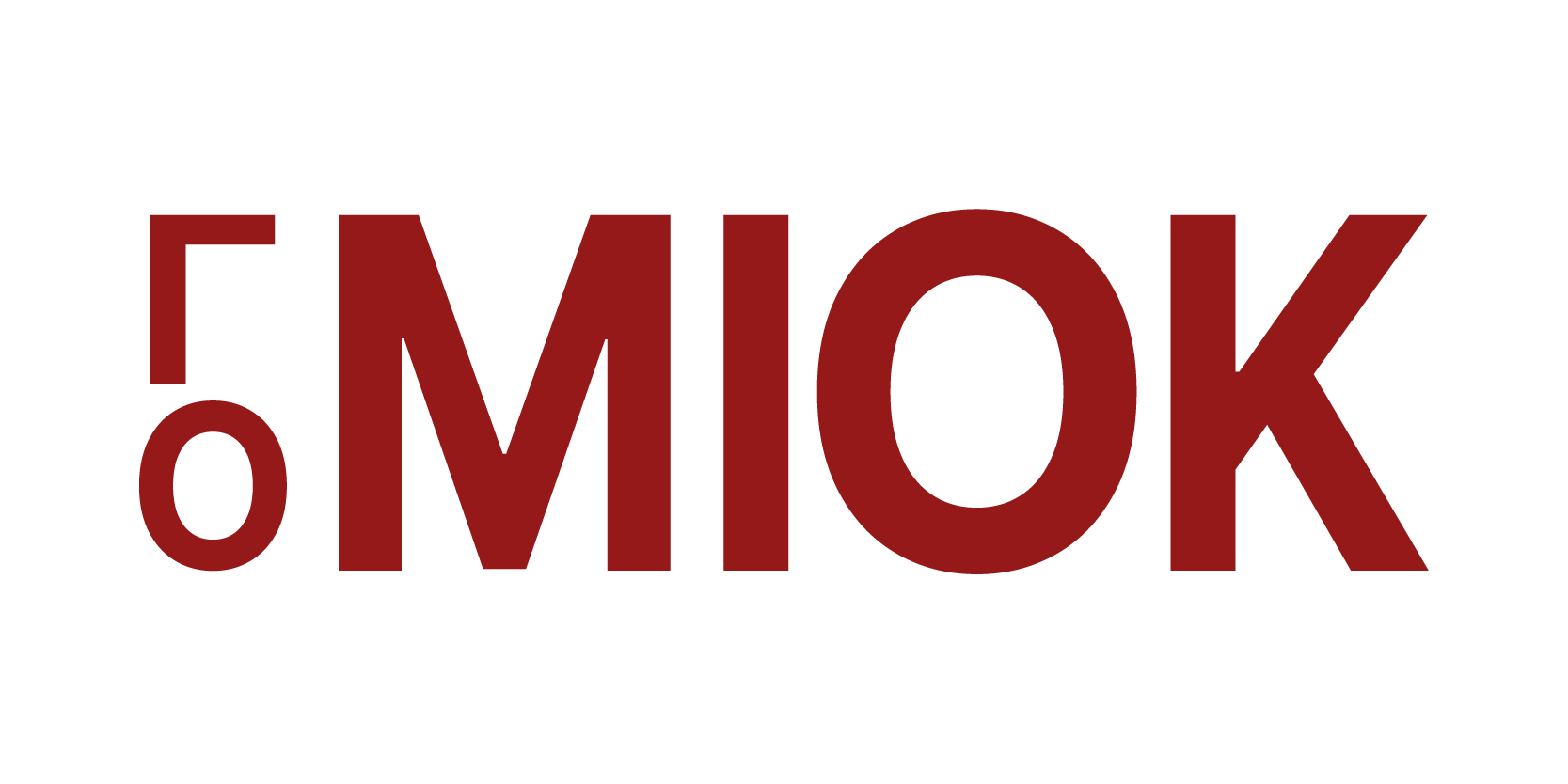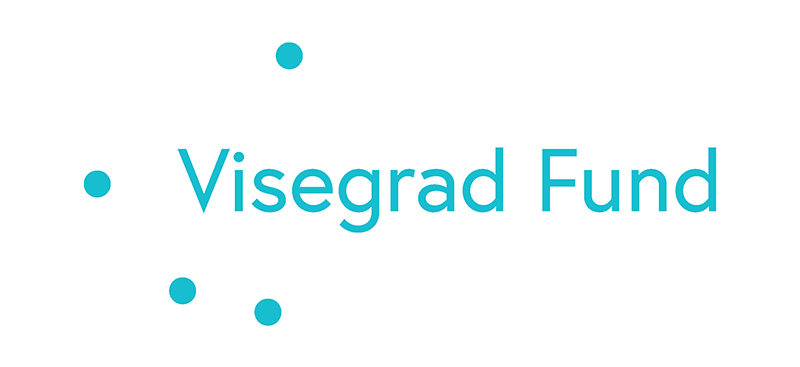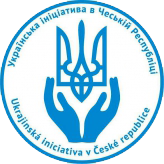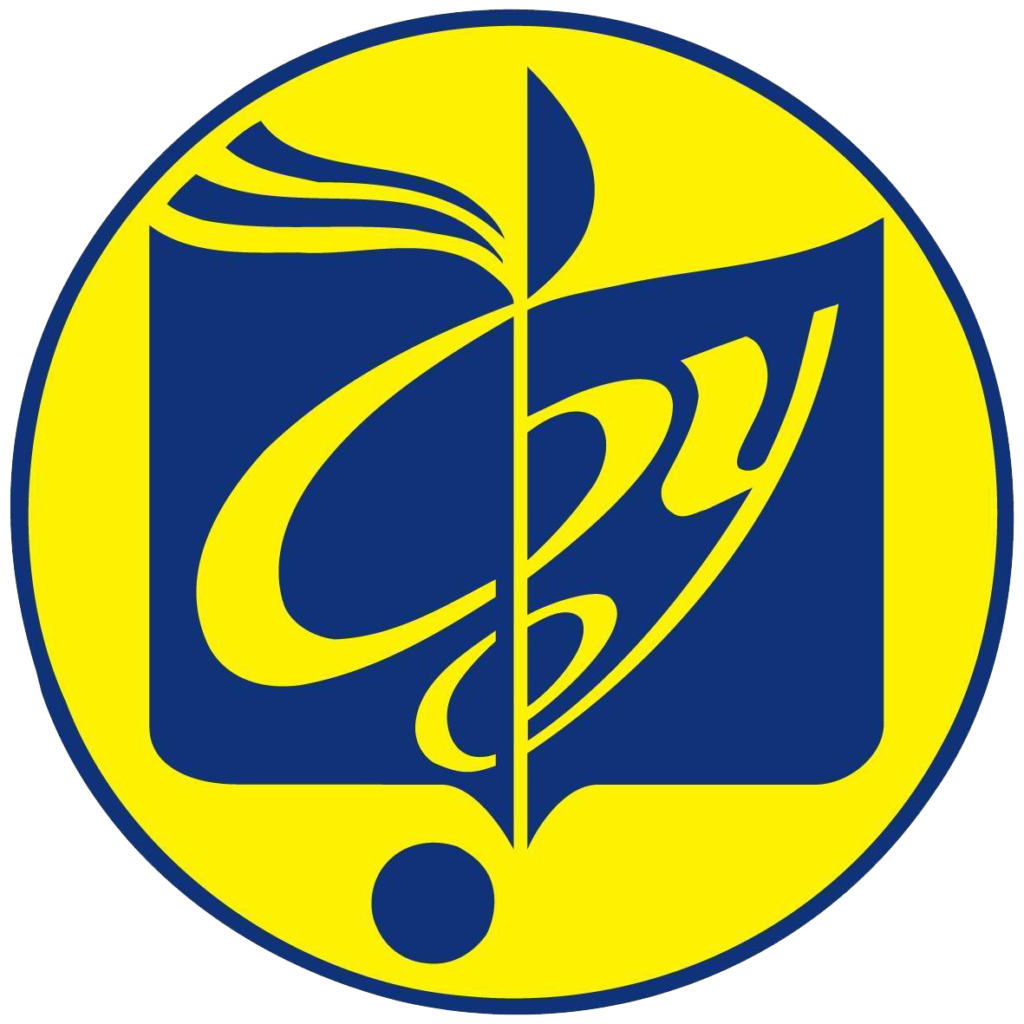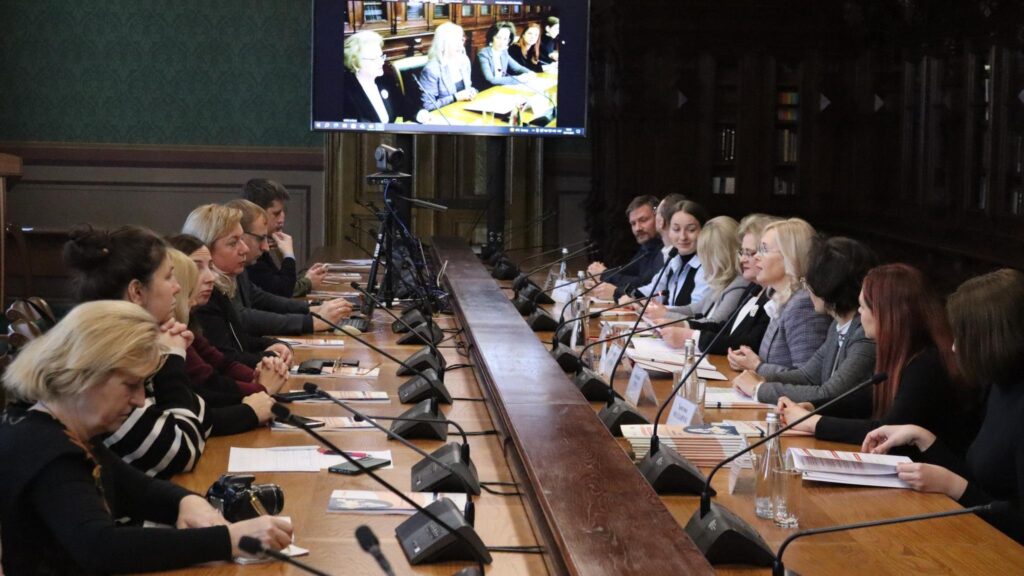
On November 26, 2024, a symposium “Cooperation of NGOs with local authorities in advocacy Ukrainian refugees’ issues in the Visegrad Countries” was held in the Zakhariyevych Hall of the main building of Lviv Polytechnic National University, organized by the International Institute for Education, Culture and Diaspora Relations of Lviv Polytechnic (IIEC). The event was held in a hybrid format (offline and online) with simultaneous translation into English. A total of 150 people from 18 countries registered to participate in the symposium.
As the project manager, Iryna Kluchkovska outlined the relevance of the study in connection with the changes that have taken place in the world as a result of the large-scale war that russia launched against Ukraine on February 24, 2022, which led to huge migration flows. She reminded the audience that Poland, the Czech Republic, and Slovakia, which were the first to take the brunt of the migration waves of millions of people from Ukraine, mobilized all their internal resources to help and overcome the problems of Ukrainian migrants. The speaker noted the rapid response to events, changes in legislation and the adoption of new laws on the status of forced migrants, emphasizing that an important factor in the successful implementation of such initiatives in these countries was the fruitful interaction of the authorities with civil society.
The co-authors of the study, Oksana Pyatkovska, Olha Dolinska, and Volodymyr Hnatiuk, presented the results of the project in an analytical report – policy paper. In particular, they highlighted the research data on the dynamics and structure of forced migration from Ukraine to Poland, the Czech Republic, and Slovakia as a result of russia’s full-scale invasion, an analysis of these countries’ policies toward war migrants, and civil society’s efforts to help them. The co-authors also provided examples of best practices of interaction between NGOs and local authorities to address the issues of Ukrainian war migrants in each of the countries covered by the project.
The symposium was attended by project partners from the Visegrad countries. Pavlo Bohdan (Chairman of the Union of Ruthenians-Ukrainians of the Slovak Republic) and Viktor Bandurchyn (Deputy Chairman of the Union of Ruthenians-Ukrainians of the Slovak Republic) spoke about how the population of the Slovak Republic perceived Ukrainian war migrants, and introduced the participants to changes in the country’s education system aimed at integration and, at the same time, support for Ukrainians. Bohdan Rajčynec (President of the European Congress of Ukrainians, Head of the Ukrainian Initiative in the Czech Republic) shared his thoughts on the challenges and responsibilities facing the Ukrainian community, which has become the largest national minority in the Czech Republic. He highlighted the main problems as the need to help socially vulnerable migrants; prevent abuse in employment and criminal activity and to this end cooperate with the Czech police and the Ministry of Internal Affairs; develop education of youth and children; and address the issue of insufficient funding for Ukrainian organizations. Halyna Andruszkow (Head of the Uniters Foundation) noted that Poland, which at the beginning of the full-scale invasion cordially opened its doors to refugees, now treats migrants as a threat and pursues a policy of assimilation, which is especially felt in the field of schooling. Ukrainian NGOs are primarily interested in Ukrainian children receiving Ukrainian education, at least in parallel with Polish education.
The event was welcomed by Natalia Chukhray (Doctor of Economics, Professor, Vice-Rector for Academic Affairs and International Relations, Lviv Polytechnic National University), who emphasized that the university implements a large number of international grants, including projects of the International Visegrad Fund. She noted that thanks to the initiative of the IIEC, Lviv Polytechnic has become a platform for communication between reputable specialists, scholars, representatives of local authorities and NGOs, whose opinion is important for understanding modern migration processes. Kateryna Terek (Deputy Representative of the Ministry of Foreign Affairs of Ukraine in Lviv) emphasized the relevance of the topic under discussion and stressed that the Ministry of Foreign Affairs of Ukraine keeps this issue under constant control. Martin Kroupa (Director of the Memory of the Nation organization in Prague, Czech Republic) noted that Ukraine is now fighting not only for its state and its people, but also for the freedom of the whole of Europe. Khrystyna Moldavchuk (Monitoring, Evaluation, Accountability and Learning Specialist, representative of the Ukraina Foundation in Wroclaw, Poland) spoke about the successful experience of their NGO’s initiatives reaching the state level. Oksana Yurynets (Doctor of Economics, Professor at Lviv Polytechnic National University, Member of Parliament of Ukraine of the VIII convocation, Head of the Ukrainian delegation to the NATO Parliamentary Assembly) emphasized the importance of researching the new ecosystem in the Visegrad countries, as this is information that needs to be known and understood. This gives a vision of how to proceed and how to rebuild the country in the future. Iryna Tymechko (Head of the Regional Development Agency of Lviv Region) noted the importance of networking and cooperation and emphasized that the results of this project could also be useful for use in Ukraine, in particular for NGOs that practice assistance to internally displaced persons, whose flow is not decreasing. Natalia Haletska (deputy of the Lviv Regional Council, chair of the Standing Committee on European Integration, International and Interregional Cooperation) emphasized the relevance of the study, as the EU is currently discussing the feasibility of extending temporary protection beyond 2026 for Ukrainian war migrants; and in some countries, including Belgium, the Netherlands, and France, the issue of equalizing Ukrainians with other migrants is being raised. Halyna Fesiuk (fellow researcher at the Taras Shevchenko National Museum) thanked for the opportunity to attend such an important presentation and suggested intensifying cultural cooperation with Ukrainian war migrants. Andriy Medvid (Doctor of Law, Director of the Scientific and Practical Center for Research and Protection of Constitutional Rights, Professor of the Department of State and Law Theory at Lviv University of Trade and Economics) noted the great scientific and practical value of the study.
Summarizing the presentation, Iryna Kluchkovska noted that this fundamental research was implemented with the support of the International Visegrad Fund in partnership of the NGO “IIEC” with the NGO “Ukrainian Initiative in the Czech Republic”, NGO “Uniters Foundation” (Poland), NGO “Union of Ruthenians-Ukrainians of the Slovak Republic”, thanked the partners for their information assistance and support and invited the heads of partner organizations to speak.
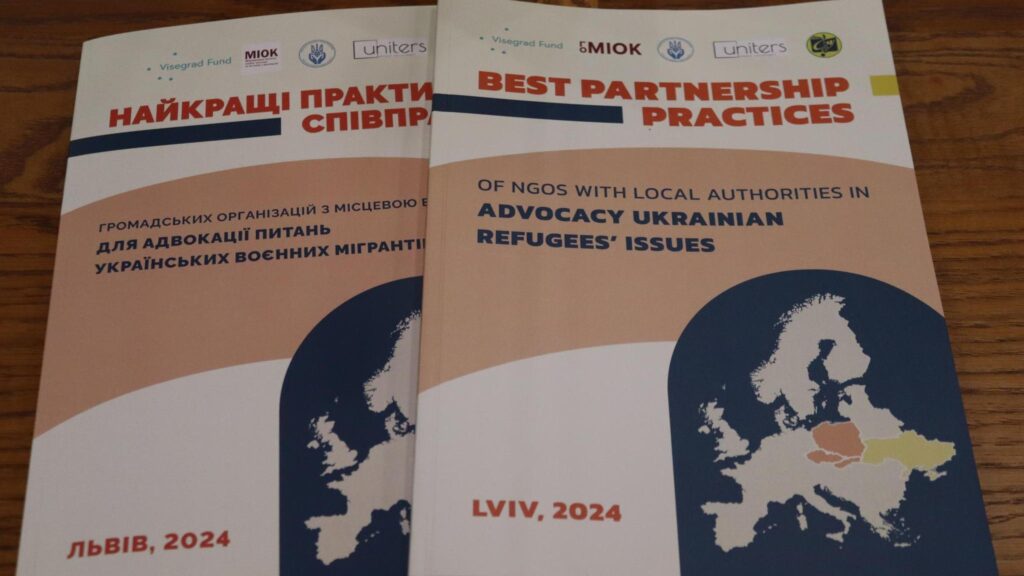
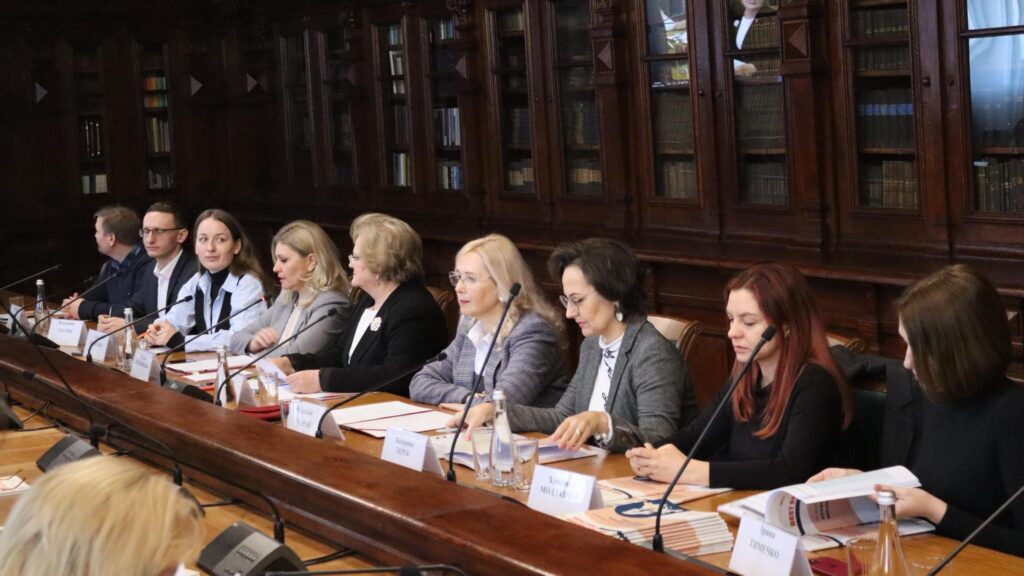
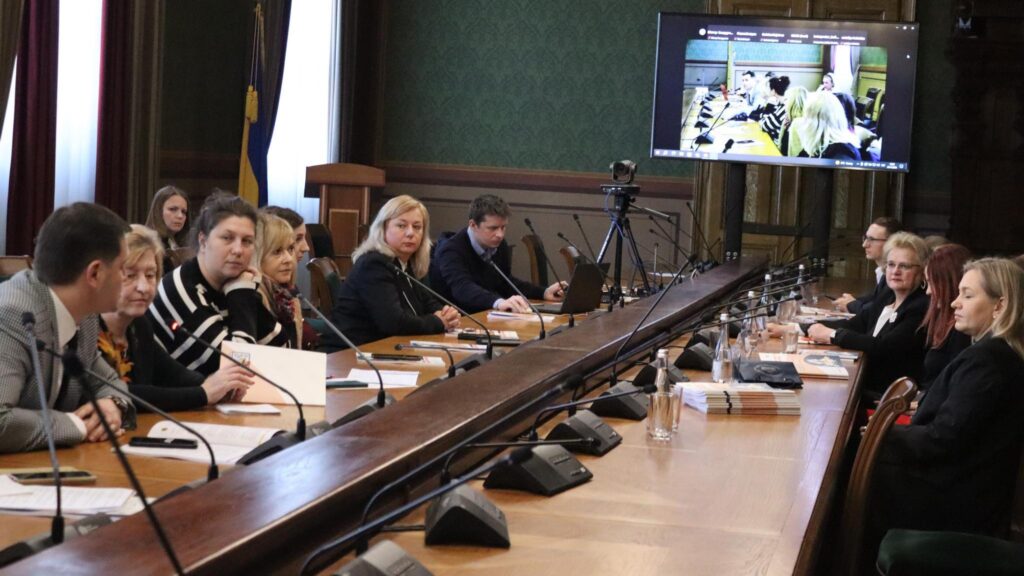
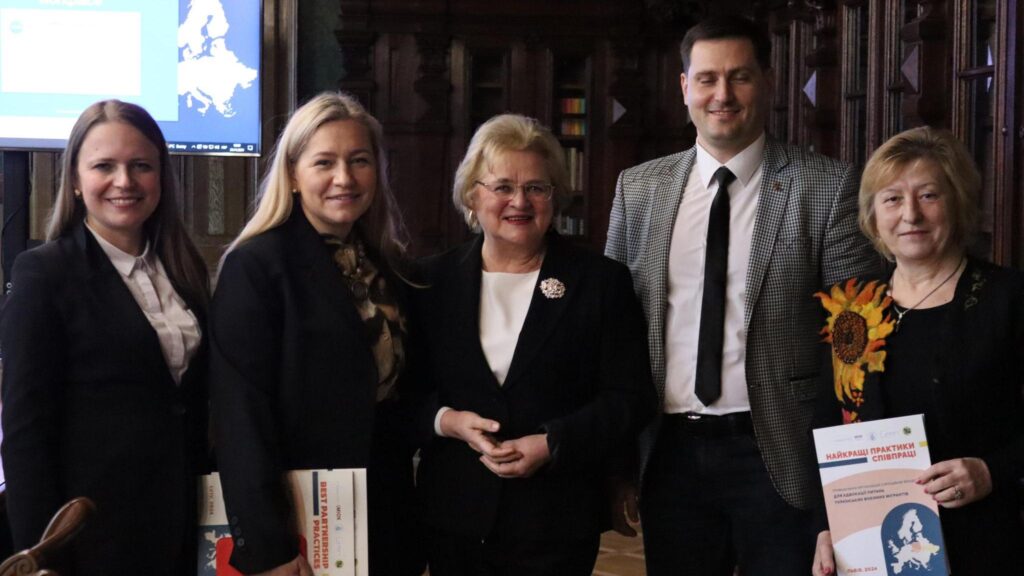
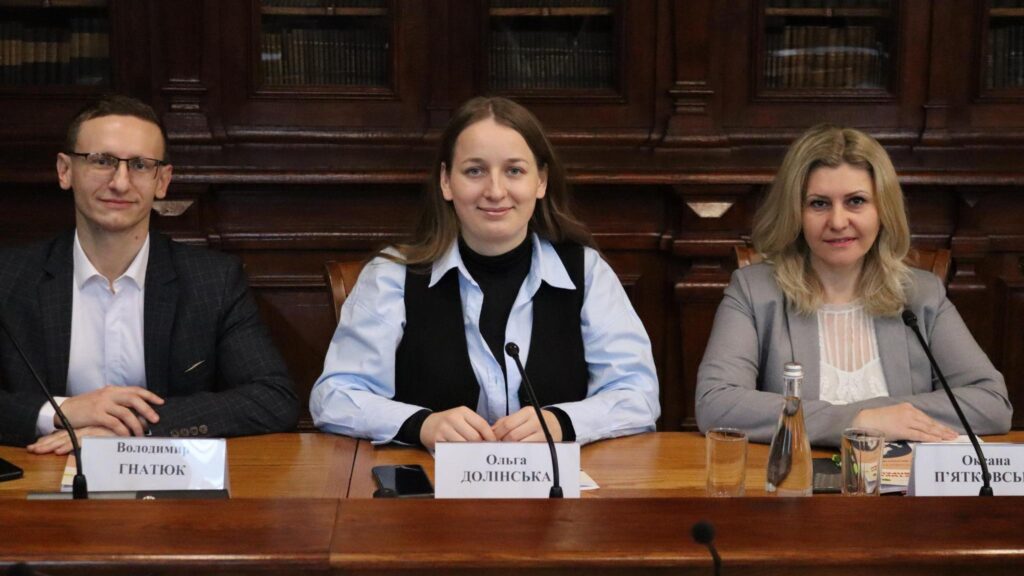
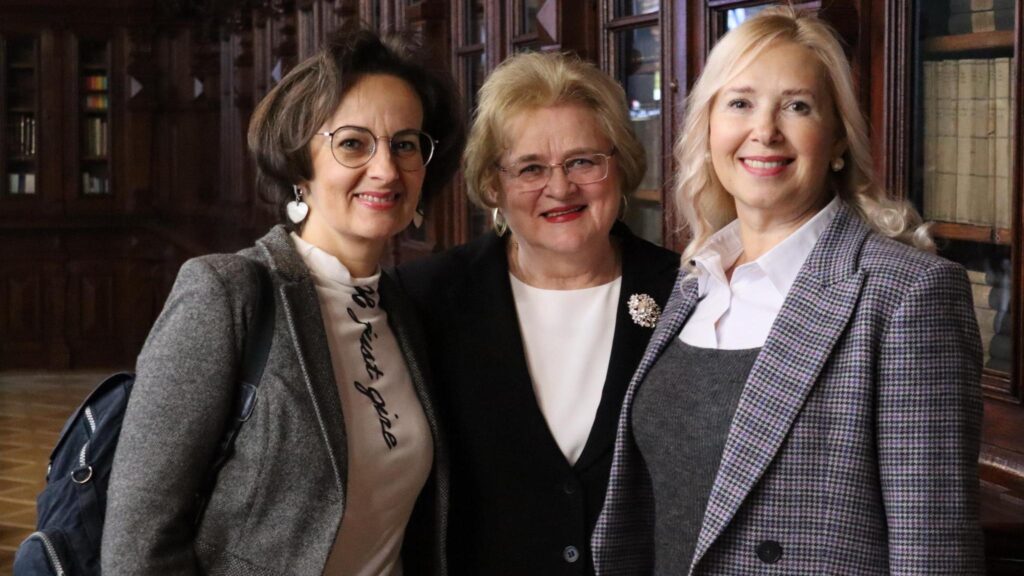
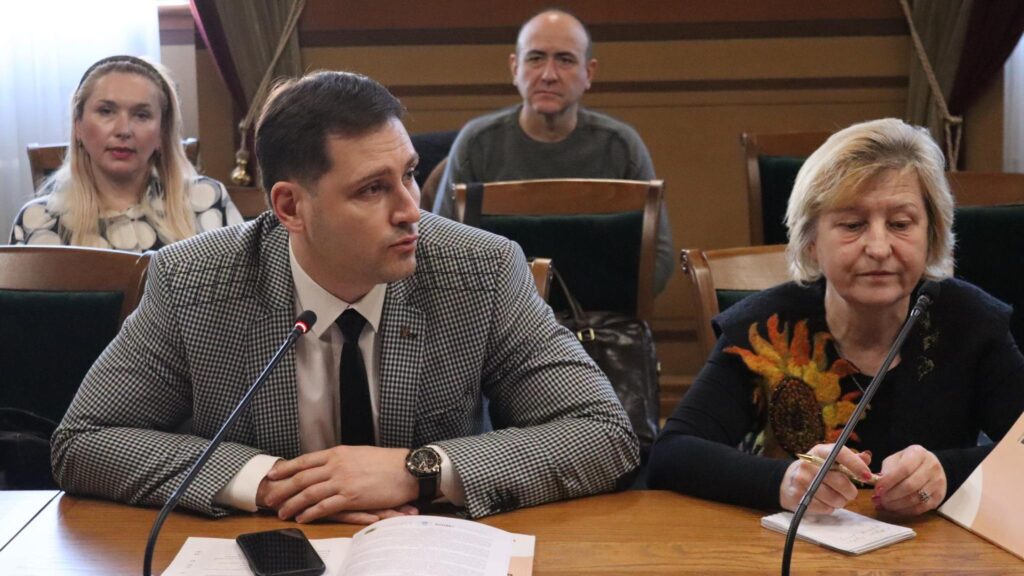
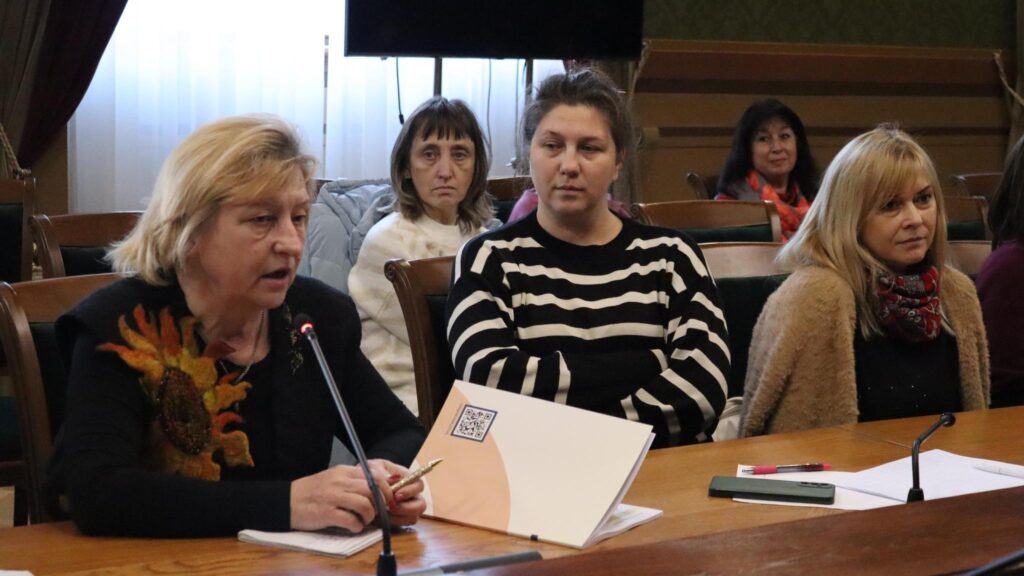
Symposium (English):
Symposium (Ukrainian):
